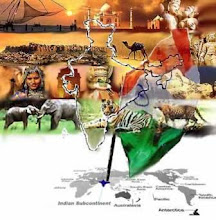A Few More Lines -
The traditional occupation of the Regars was the tanning of hide and the colouring of leather. Some of them have now started making shoes. A section of them have taken up other occupations, like service, tailoring, masonry and labour. Primaty health centres and hospitals are located in their vicinity, but their attitude towards family planning is not satisfactoty.The Raigars are a landless community, earlier engaged in skin-tanning, shoe-repairing and shoe-making. Most of them work as labourers and a few are in government service. Although many of them now achieved good status in the society. Some are IPS, IAS, Engineers, Doctors, Lawyers and also in some other professional trades.
They have their traditional panchayats at local, state and all-India levels. The all-India-level panchayat is known as the All India Raigar Maha Sabha. Their associations look after the interests of the community at different levels. They are Hindus and worship Bhagwan Ravidas, Lord Shiva, Ramdevpir, Hanuman, Bhairo and Ganesh. Women take part in social, ritual and religious festivals and fairs like Holi, Diwali, Dussehra, Teej, Gangore, Rani Sati Mela, and Ramdeojee ka Mela. They profess Hinduism and worship Shankar, Lakshmi, Durga and Ganesh. Sacred specialists are from their own community. Their sacred centres are Hardwar, Gangaji, Lohagar and Triveni.
They have folk traditions and sing the folk-songs of Punjab, Haryana and Rajasthan on various occasions. The Raigars accept food and water’from all communities. They recall that in Rajasthan they were not allowed to ride on horseback, wear turbans (pagri) and good clothes and could not enter hotels. However, these discriminations do not exist now.They share roads, schools and shrines, but not crematoria. Some of them have emerged as political leaders at the national level. Formal education is favoured for both boys and girls. Modern medicare facilities are availed of and their attitude towards Family planning is favourable. Hand-pumps are used for drinking water. They avail of the facilities of the public distribution system.
skip to main |
skip to sidebar
The Home of the Raigar
The Raigar Community
The Home of the Raigar Community
The Home of the Raigar Community
E-Mail - theraigar@gmail.com , theraigar@yahoo.com , theraigarcommunity@gmail.com , theraigarcommunity@yahoo.com
Site Last updated on: June 30 , 2009
E-Mail - theraigar@gmail.com , theraigar@yahoo.com , theraigarcommunity@gmail.com , theraigarcommunity@yahoo.com
Site Last updated on: June 30 , 2009
